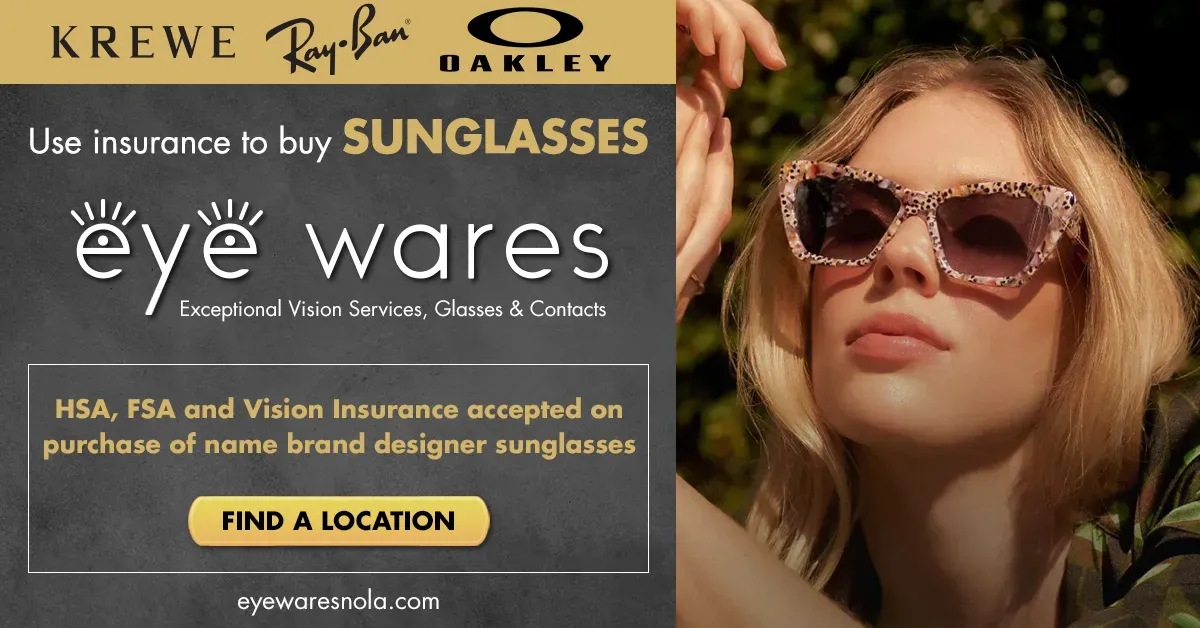Table of Contents
You just bought a new pair of sunglasses. Maybe they cost a pretty penny. You walk out feeling great, ready to face the sun in style. Then it happens. They slip off your head, a rogue wave hits, or perhaps a small, mischievous child decides they make a great chew toy. Suddenly, your investment is scratched, bent, or simply gone. The immediate thought is probably, "Well, there goes that money." But what if there was a way to protect those fragile frames and delicate lenses? This is where the idea of sunglass insurance pops up. It sounds a bit niche, maybe even excessive to some. After all, it's just a pair of sunglasses, right? However, for those who invest in high-end eyewear, or simply have a knack for misplacing or damaging things, the potential cost of replacing or repairing can sting. This article digs into the murky world of sunglass insurance to figure out if it's a legitimate safety net or just another way to spend your hard-earned cash. We'll look at what these policies actually cover, who offers them, and ultimately, help you decide if sunglass insurance is a smart move for your specific situation.
What Sunglass Insurance Actually Covers (and What It Doesn't)
What Sunglass Insurance Actually Covers (and What It Doesn't)
so you're wondering, "What Sunglass Insurance Actually Covers (and What It Doesn't)?" It's not as simple as just insuring them against everything bad that could ever happen. Typically, these policies, often offered through retailers like sunglasshub.org or sometimes bundled with homeowners/renters insurance or even specialized eyewear plans, focus on specific types of damage or loss. Think accidental breakage – like sitting on them (we've all been there, right?) or dropping them on concrete. Sometimes theft is covered, which is a relief if they disappear from your bag at the beach. However, wear and tear is almost always excluded. That tiny scratch from wiping them with your shirt? Probably not covered. Losing one lens? Maybe, maybe not, depends on the fine print. And just plain old losing them with no evidence of theft? That's often a tough sell for a claim.
Exploring Different Types of Sunglass Insurance Options
Exploring Different Types of Sunglass Insurance Options
Retailer-Specific Protection Plans
Alright, so you've decided your shades might need a little backup. Where do you even look for sunglass insurance? The first place many people encounter it is right at the point of sale. Big retailers, the ones selling those expensive designer frames or specialized sports optics, often push their own protection plans. Think of it as an extended warranty, but for your face furniture. They usually cover accidental damage – snapped frames, scratched lenses from a drop – for a set period, maybe a year or two. Some might offer a discount on a replacement if yours are lost or stolen. The catch? These plans can add a noticeable chunk to the price tag, and the coverage details can be surprisingly restrictive. You really need to read the fine print to know exactly what scenarios are covered and what hoops you'll jump through for a claim.
General Insurance Riders and Personal Property Coverage
Beyond the sunglass shop counter, you might already have a form of sunglass insurance without even knowing it. Sometimes, your existing homeowners or renters insurance policy can offer coverage for valuable personal property, which could include your sunglasses. This usually requires adding a specific rider or increasing the coverage limit for high-value items. It means if your apartment gets burgled and your expensive sunglasses are swiped along with your TV, they might be covered under the same claim. The downside here is the deductible. Is paying a $500 or $1000 deductible worth it to replace a pair of sunglasses that cost, say, $300? Probably not. This option is usually only practical for truly high-end or custom eyewear worth thousands, where the cost significantly outweighs the deductible.
Let's break down where you might find these options:
- **Eyewear Retailers:** Often offer their own specific plans at purchase.
- **Homeowners/Renters Insurance:** Potentially covers sunglasses under personal property, sometimes requiring a rider for high value.
- **Specialized Insurance Providers:** Less common, but some companies offer specific gadget or valuable item insurance.
- **Credit Card Benefits:** Some premium cards offer purchase protection or extended warranties that *might* apply.
Credit Card Benefits and Extended Warranties
Here's a less obvious angle for sunglass insurance: your credit card. Many credit cards, especially those with annual fees, come with built-in purchase protection or extended warranty benefits. Purchase protection might cover damage or theft for a short period after you buy something (usually 90-120 days). An extended warranty could add an extra year or two to the manufacturer's warranty. While not traditional "insurance," these can act as a safety net for initial accidents or defects. The challenge is figuring out if your specific card offers these perks and if sunglasses qualify. It's not a guarantee, but it's worth checking your cardholder agreement before shelling out extra cash for a separate policy.
Is Sunglass Insurance Worth the Cost for Your Eyewear?
Is Sunglass Insurance Worth the Cost for Your Eyewear?
Calculating the Real Value of Protection
So, you're staring at the price tag for that sunglass insurance plan, wondering if it's just another upsell or genuinely useful. Is sunglass insurance worth the cost for your eyewear? To answer that, you need to do a little mental math. What did the sunglasses cost you in the first place? $50? $500? More? Now look at the cost of the insurance plan. Is it 10% of the sunglass price? 20%? Some plans might cost $20-$30 for a year, while others tied to high-end frames could run $50 or more. Compare that annual cost to the likelihood of you actually breaking, losing, or having your specific pair stolen. Are you notoriously clumsy? Do you live in an area with high petty theft? Do you wear them doing activities where they're likely to get damaged, like rock climbing or competitive synchronized swimming?
Honestly, for a cheap pair you picked up at the convenience store, the math rarely works out. The insurance cost, even if low, probably outweighs the replacement cost, and filing a claim for $30 sunglasses feels like more effort than it's worth. For those pricier pairs, say $200 and up, the calculation gets a bit more complex. You're essentially paying for peace of mind against specific mishaps. Think about how much it would sting to drop another couple hundred bucks on a replacement versus the smaller, recurring cost of the insurance.
Assessing Your Personal Risk Factors
Beyond the sticker price of the shades and the policy, your lifestyle plays a massive role in deciding if sunglass insurance is a good gamble. Are you the person who keeps electronics in pristine condition for years, or are you the one whose phone screen looks like a spiderweb within weeks of purchase? Your history with personal items is a pretty good predictor here. If you're constantly misplacing things or engaging in activities that put your eyewear in harm's way, the perceived value of sunglass insurance goes up. Conversely, if your sunglasses typically live safely on your face or in their case, the insurance might feel like paying for protection you don't need.
Consider the environment where you wear them most. Dusty construction sites, active sports fields, crowded public transport – these all increase the risk profile compared to someone who only wears them while driving or sitting quietly by a pool. It boils down to how much you value the specific pair and how likely you are, based on your own track record and habits, to damage or lose them. It's not just about the money; it's about the hassle of replacement and potentially being without your preferred eyewear.
Ask yourself these questions:
- How much did the sunglasses cost?
- What is the annual cost of the insurance plan?
- How careful are you generally with your belongings?
- What kind of activities do you do while wearing your sunglasses?
- Would replacing them be a significant financial burden or inconvenience?
How to File a Claim with Sunglass Insurance
How to File a Claim with Sunglass Insurance
Starting the Process: What to Do First
so the worst has happened. Your sunglasses are damaged, lost, or stolen, and you need to figure out How to File a Claim with Sunglass Insurance. Don't just shove the broken pieces in a drawer and sigh dramatically. The very first step is usually contacting the insurance provider or the retailer you bought the policy from as soon as possible. Most policies have a time limit for reporting an incident, often within a certain number of days. You'll need your policy number or proof of purchase handy. Be prepared to explain exactly what happened – where, when, and how the damage or loss occurred. Be honest; trying to embellish a story usually backfires spectacularly. They aren't just going to take your word for it, so gather any evidence you can, like photos of the damage or, in the case of theft, a police report if you filed one.
Gathering Information and What Happens Next
Once you've initiated the claim, the insurance provider will likely send you some forms to fill out or direct you to an online portal. This is where you provide more detailed information. You'll need specifics about the sunglasses themselves – brand, model, purchase price, and date. Having the original receipt or any documentation that came with them is incredibly helpful here. If they were stolen, they'll definitely want that police report number. After you submit everything, the provider will review your claim. This can take anywhere from a few days to a couple of weeks. They might ask for additional information or evidence. If approved, they'll typically offer repair or replacement options based on the policy terms. Don't expect a blank check; they'll usually want to replace the sunglasses with the same or a comparable model, or cover the cost of repair up to a certain limit.
When filing a claim, remember these key points:
- Act quickly and report the incident within the required timeframe.
- Have your policy number and purchase details ready.
- Be truthful and specific about what happened.
- Gather any supporting evidence (photos, police reports, receipts).
- Understand the policy's terms regarding repair vs. replacement.
Finding the Right Sunglass Insurance for Your Needs
Finding the Right Sunglass Insurance for Your Needs
Alright, so we've dissected what sunglass insurance is, where you might find it, and whether the numbers even begin to make sense for your particular shades. Now comes the actual legwork of Finding the Right Sunglass Insurance for Your Needs. This isn't like picking out a new pair of socks; you can't just grab the first one you see. You need to compare. Look at the retailer's plan when you're buying – what's the annual cost? What exactly does it cover (accidental damage only? Theft?)? What's the deductible, if any? Then, call your homeowners or renters insurance provider. Ask specifically about personal property coverage for items like high-value sunglasses. What's your deductible on that policy? How would filing a claim affect your premium? Don't forget to check those credit card benefits; sometimes, that built-in purchase protection is enough for the initial period of maximum clumsiness. It sounds tedious, I know, but skipping this comparison step is how you end up paying for coverage you don't need or a policy that's useless when you actually need to file a claim. It boils down to matching the policy's coverage and cost to your perceived risk and the value of your sunglasses. If the policy costs half as much as the sunglasses annually and has a high deductible, you're probably just throwing money away.
So, Is Sunglass Insurance Worth the Hassle?
After weighing the options, the necessity of sunglass insurance isn't a universal truth. For that cheap pair you grabbed on impulse at the gas station, absolutely not. The replacement cost is minimal. But for your designer frames, the ones you carefully selected and paid a premium for, the calculation changes. Policies vary wildly in what they cover – lost, stolen, or just plain broken. Some offer a full replacement, others a significant discount. You need to read the fine print, something most people skip until disaster strikes. Ultimately, whether it's a smart buy depends on your risk tolerance, the value of your sunglasses, and your personal track record with keeping track of small, expensive items. It's not a magic shield, but for some, it might just save a significant chunk of change when the inevitable happens.
